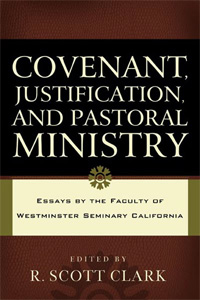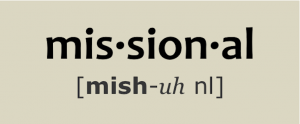This Sunday morning, in the adult catechism class at Oceanside URC, I begin a series on the emerging/-ent church movement. Catechism begins at 10:15 AM and worship begins at 11:00 AM (I’m also preaching the next two Sunday mornings and WSC Jon . . . Continue reading →
emerging church
Live 28 October 2008 2:20-3PM Pacific
On Issues Etc. We’ll be discussing Reforming or Conforming: Post-Conservative Evangelicals and the Emerging Church.
Tall Skinny Kiwi Reads Reforming or Conforming
Martin has the links.
Video: Emergent Panel Discussion Online
At Tangle (HT: Kevin DeYoung) The discussion features Kevin DeYoung, Scot McKnight, Tony Jones, Alex and Brett Harris.
"The Shack" and the Atonement
Gary Johnson writes: The Scriptural support for the doctrine of penal substitution, as we will see, is overwhelming. Nonetheless, there is perhaps no other single doctrine that has elicited such harsh criticisms, even from those claiming to be Evangelical.
On Being Truly Postmodern
An HB Classic
There is a good deal of talk in contemporary evangelicalism about the rise, nature, and effect of so-called “postmodernism,” a movement in architecture, literature, philosophy, and religion associated with a circle of French writers such as Michel Foucault and Jacques Derrida. In . . . Continue reading →
Yes There Is A Reformed Doctrine Of Justification
Recently I responded to John Armstrong’s post on the TIME magazine new Calvinist discussion. In his reply, John makes this startling claim: There is no monolithic Reformed voice on justification (especially re: imputation) and I would be very happy if we allowed a . . . Continue reading →
With Janet Mefferd On The Social Gospel
Here’s today’s episode of Janet Mefferd Today in which we discussed the “social gospel,” Walter Rauschenbusch, the emergent/emerging church movement and what it means that evangelicals seem to be heading back to this well for inspiration. We also talked about some alternative . . . Continue reading →
Why The Mission Needs The Marks
Doubtless the one of the most significant movements within evangelicalism at the moment is the “emergent” or “emerging churches” movement. The adjectives “emerging” and “emergent” designate different wings of the movement. Generally, the “emergent” wing is more radical and the “emerging” wing a little less radical. Just as frequently, however, in the contemporary rhetoric from both wings of the movement no distinction is made and this essay will speak of the “emerging movement” (hereafter, EM). Like their older evangelical brothers and sisters, the EM also rejects (at least elements of) fundamentalism and revivalism. In their place, they are constructing a cross-traditional, eclectic synthesis. Continue reading →
On Being Truly Postmodern
There is a good deal of talk in contemporary evangelicalism about the rise, nature, and effect of so-called postmodernism, a movement in architecture, literature, philosophy, and religion associated with a circle of French writers such as Michel Foucault and Jacques Derrida. In . . . Continue reading →



